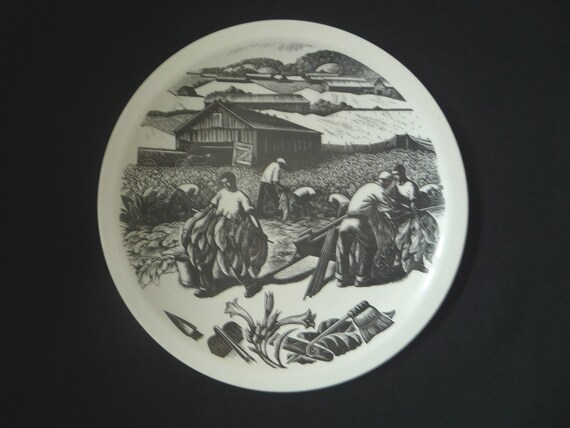An Epic of Earth and Water: Clare Leighton and the New England Industries Series
Birmingham Museum of Art
October 05, 2020 - May 02, 2021 - Arrington Gallery
In 1948, the Wedgwood company asked British-American artist Clare Leighton (1898-1989) to create a series of twelve designs to be printed on a limited edition set of creamware plates for the American market. Wedgwood decided that the theme would be “New England Industries,” but gave Leighton freedom to choose which industries she would focus on, an exciting opportunity for the artist, who was well familiar with New England from summers spent in Cape Cod, Massachusetts.
Thus began a journey for the artist, who spent the next three years of her life exploring New England’s countryside and seaside villages in an effort to better understand the place and the people. In the end, Leighton chose twelve industries that represent the heart and soul of New England: whaling; cranberrying; marble quarrying; maple sugaring; cod fishing; ship building; farming; tobacco growing; logging; grist milling; ice cutting; and lobstering. Typical of Leighton’s work, each design – from the figures included to the vignettes of tools and assorted equipment associated with the industry – is created with respect and dignity through the use of powerful lines and rich tones of black and white.
“We’ve recently acquired Leighton’s twelve wood engravings for the series, and are so excited to present them alongside the twelve Wedgwood plates,” says Dr. Anne Forschler-Tarrasch, The Marguerite Jones Harbert and John M. Harbert III Curator of Decorative Arts. “This is a wonderful period in the artist’s work, but also at the Wedgwood company, which at the time invited new artists
to create fresh designs for tablewares and other decorative objects.”
An Epic of Earth and Water: Clare Leighton and the New England Industries Series will highlight the twelve wood engravings created by Leighton for Wedgwood juxtaposed with the twelve creamware plates produced in 1952. The exhibition explores Leighton as artist, her process, and the Wedgwood commission.



Comments
Post a Comment